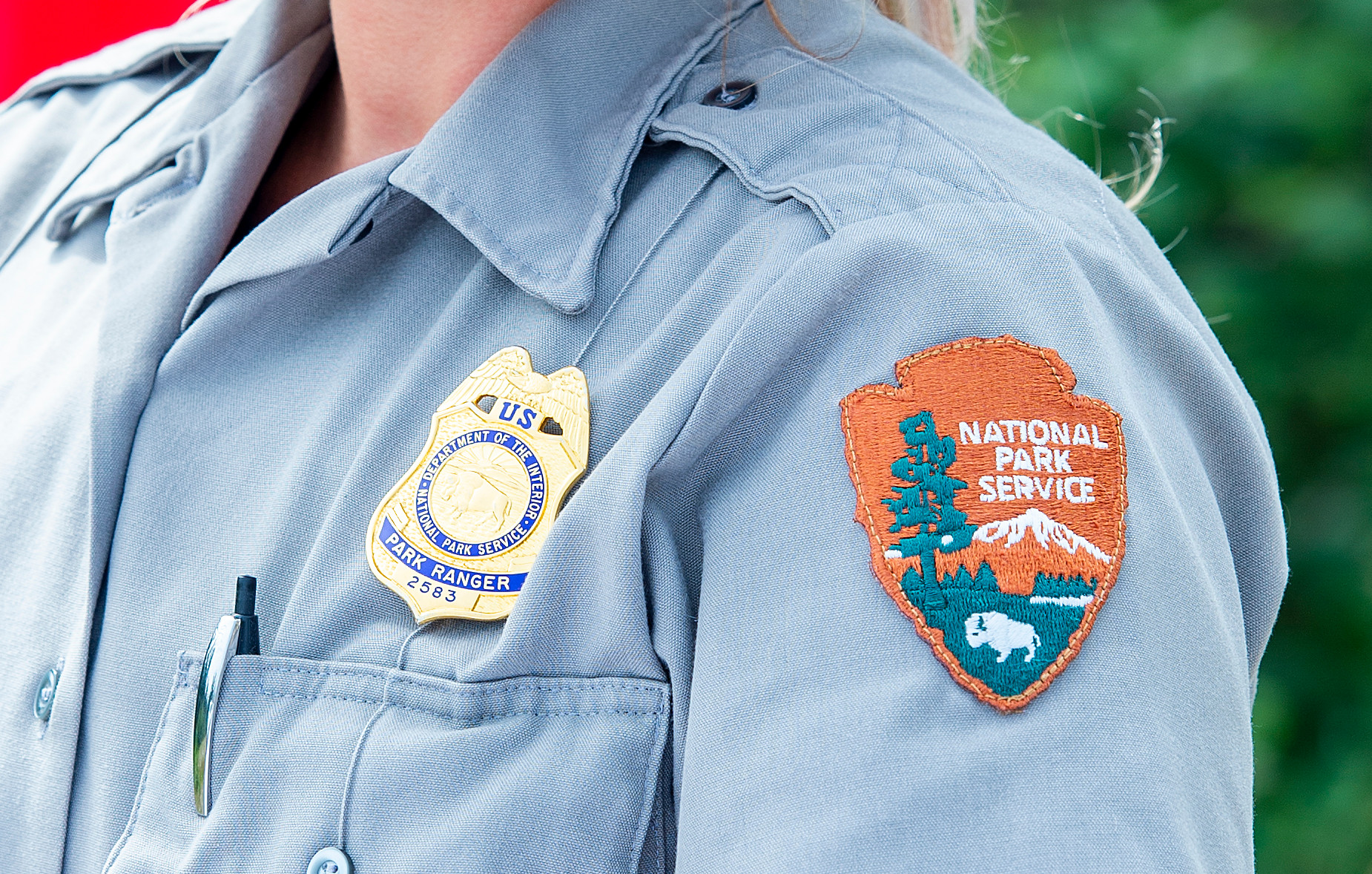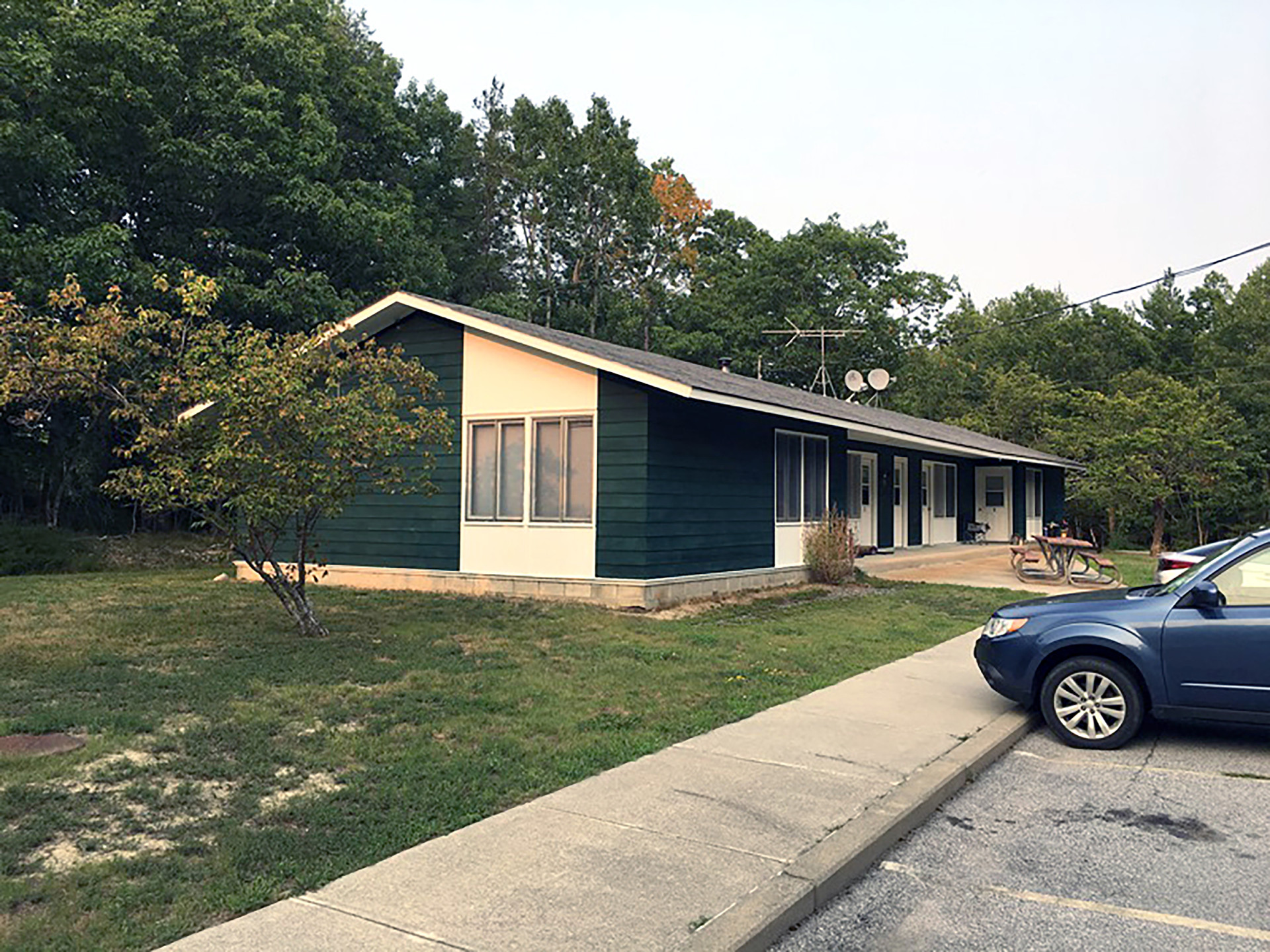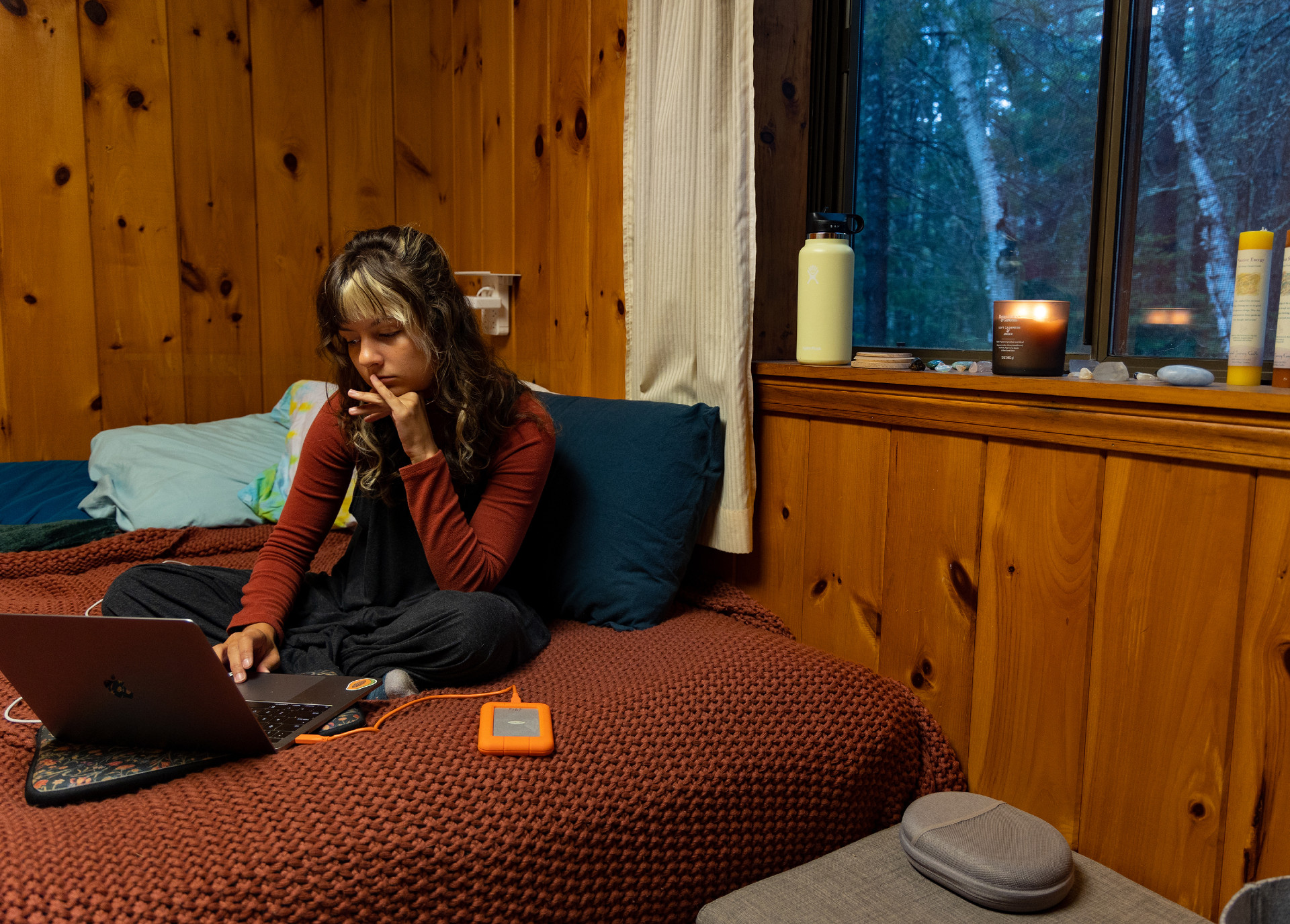Housing Challenges Impact Vital Work in Acadia
August 2nd, 2022
August 2nd, 2022

Like other employees in the area, park employees struggle to find affordable places to live. (Photo by Ashley L. Conti/Friends of Acadia)
By SHANNON BRYAN
When visitors explore Acadia, it’s the landscape that typically captures their attention. They delight over tree-lined trails and granite peaks, coastal vistas, and calm ponds.
What visitors don’t often see is the employees who keep the park humming day in and day out: the hard-working law enforcement rangers, wildlife biologists, trail crews and maintenance workers. Even more difficult to grasp is the challenge those workers face trying to find a place to live for the season-and the serious impact that lack of workforce housing has on the park’s ability to meet its mission.
Each spring, both the park and Friends of Acadia hire seasonal staff to complement full-time teams and support the considerable increase in park visitors-numbers that continue to climb year after year, to the point of four million visits in 2021.
Friends of Acadia hires around 15 seasonal employees each year, including Summit Stewards, a Wild Gardens intern, Recreational Technicians, Stewardship Crew Leaders, and members of the Acadia Digital Media Team. Acadia National Park hires 10 times more-approximately 150 people. These seasonal employees do everything from managing trails, assisting visitors, maintaining buildings, ensuring visitor safety, cleaning restrooms, and more.
In recent years, filling those vital seasonal roles-as well as full-time positions at the park-has become more challenging. The reasons why are multifaceted, but one significant factor is the lack of affordable housing on and near Mount Desert Island.
Seasonal staff historically would find summer lodging in and around the island, perhaps an apartment, room share, or an RV parked at one of the campgrounds. But those options are increasingly out of reach.
A 2018 housing study conducted by the Island Housing Trust, a Bar Harbor-based organization that promotes viable, year-round island communities by advancing permanent workforce housing on Mount Desert Island, highlights rising housing costs that far exceed the rise in median income. The study also acknowledges the increase in short-term rentals, which cater mostly to vacationers who are generally on the island for a week or two. Every short-term rental listed on platforms like AirBnB or VRBO means one less housing option for a seasonal or year-round worker.
And these factors have only multiplied since the pandemic. Kyle Shank, an Island Housing Trust Advisory Council member and quantitative researcher, noted in a meeting last fall that Hancock County saw an 88 percent increase in relocated households from out of state in 2020.
The impact on Friends of Acadia is direct. For Summit Steward Coordinator Stephanie Ley, the lack of housing has hindered her ability to hire for her team. “We have really wonderful candidates from across the country,” she says. “To get them to accept the job, they need to have housing-but it’s very difficult to find, especially from afar.” As a result, she’s lost candidates.
“We have great local candidates, too. I’m excited about the ones we have on the team,” Ley adds. But being able to cast a wider net helps to build the team’s skill set and provides opportunities for people who aren’t lucky enough to already live here.

Harden Farm apartments is one of Acadia’s existing properties that provide seasonal employee housing. (Photo by John Kelly/NPS)
The housing challenge isn’t exclusive to Acadia National Park; many parks around the country are facing similar pressures. But it does directly impact work to help the park be more resilient in the face of climate change, engage youth, balance visitor experience with resource protection, and maintain Acadia’s amazing trails and carriage roads.
That’s why in fall 2020, the Friends of Acadia Board of Directors established the Seasonal Employee Housing Committee to better understand the challenges and to explore what role Friends of Acadia might take to support the park, as well as how our efforts could complement the work of others on this issue.
“The Friends of Acadia board realizes that it is absolutely essential to our ability to help preserve and protect Acadia going forward,” says board member Dave Edson, who chairs the housing committee. “We believe it’s critical for Friends of Acadia to play an active role in both short and long-term solution-finding to establish housing for seasonal staff, while also being mindful to not have a negative impact on the larger community and the housing challenges of year-round residents.”
Former Friends of Acadia President & CEO David MacDonald agrees. “The word ‘crisis’ is not putting it too strongly,” he says. In fact, it’s so important, that while MacDonald stepped away from his position at Friends of Acadia earlier this year, the Board of Directors asked him to continue to support this work on a contract basis while transitioning to new President and CEO Eric Stiles.

Acadia National Park hasn’t been able to fill its lifeguard positions at Sand Beach for several years in part due to the seasonal housing shortage. (Photo by Emily Moses/Friends of Acadia)

Sam Mallon, 2022 Acadia Digital Media Team member, lives in rental units owned by Pat and Bob Foster. Encouraging more rental owners to offer their units seasonally or year-round rather than as short-term rentals is one approach to mitigating the lack of housing for park and Friends of Acadia staff. (Photo by Sam Mallon/Friends of Acadia)
Meeting immediate needs through a combination of creative solutions is important now, but Friends of Acadia is equally invested in assisting the park in establishing reliable, sustainable housing for staff well into the future.
The Seasonal Housing Committee is working to identify ways that Friends of Acadia can help accelerate park efforts to build new housing for seasonal employees in appropriate locations on park land. One example is the Harden Farm tract on Keba Street in Bar Harbor, which is already the site of a handful of park units, and has been identified since the 1960s as a promising location that could accommodate additional housing.
Agreeing on a suitable level of development, then doing the planning and design work to make the project “shovel ready,” while advocating for federal funding from Congress to enable it to happen, are steps that will require a strong public-private partnership.
Another property subject to discussions is a 55-acre tract in Town Hill. Owned by the park, it was identified in the 1986 park boundary legislation for transfer to the town for use as a solid waste facility; the facility was never constructed, however, and now the need for one has diminished.
This spring, U.S. Sens. Angus King and Susan Collins introduced legislation to change its intended use to allow for the development of workforce housing for seasonal workers and full-time residents, as well as slating a portion to the National Park Service to construct staff housing. The Island Housing Trust is willing to work with the park and the town to pursue the shared goals. Friends of Acadia has already begun advocating for passage of the required federal legislation and has offered its support for site assessment work needed to answer questions about the potential level and location of development here in the future.
As with any complex and nuanced challenge, there’s no magic bullet. Instead, Friends of Acadia’s approach is based in creative problem-solving, partnering with others, and advocacy.
“The ways in which Friends of Acadia has been asked to help support the park have grown and evolved over the years,” says MacDonald. “This is yet another example of that, and we are encouraged by how Friends of Acadia members and partners are already responding with support and ideas.”
SHANNON BRYAN is Friends of Acadia’s Content and Website Manager.
Download a PDF of this story
Finding a Place: Housing Challenges in Acadia – Friends of Acadia Journal Summer 2022
Additional Coverage
For Acadia employees, it’s nearly impossible to find an affordable place to live near the park – via Maine Public